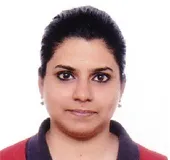-
CENTRES
Progammes & Centres
Location
To make the most of the demographic dividend, strengthening access to data and fostering robust capacity-building programmes under development partnership modalities remain crucial.
.png)
This is part of the essay series: World Population Day 2024
With mounting sustainability concerns, the world is intently looking for innovative solutions, the sharing of best practices and knowledge for augmenting the capacities of the developing economies. Given the increasing geopolitical instability and unprecedented scenarios looming large, the youth can play a key role in driving social change, and economic prosperity, and ensuring long-term sustainable development. As key stakeholders in combating innumerable critical issues, such as climate change, gender inequality, illiteracy, and conflict, amongst others, young people can play a pivotal role in driving sustainable development. As per the UN, approximately 1.2 billion people are aged between 15 to 24 years making up about 16 percent of the global population. In the Indian context, the average age amongst a burgeoning population of 1.3 billion is about 29, making it one of the youngest populations globally. Being termed as a ‘demographic dividend’, skills training and increasing capacities of the young people, thus becomes a necessity. This also gains further importance in the context of India’s ambitious target of becoming a US$ 5 trillion economy in the next three years. In fact, development partnerships have been instrumental in bolstering skills training and capacity-building programmes over the years. With the gradual evolution of the development landscape, ‘aid’ has given way to ‘partnerships’ and ‘cooperative’ frameworks. Building the individual capacity of human capital not only boosts productivity but also increases the earning capacity of the individual, in the long run. As one of the 17 sustainable development goals (SDGs), forging partnerships for implementing effective and targeted capacity-building in developing economies falls under SDG 17 (Target 17.9). Empowerment of the youth to enhance their capacities, capabilities, and competencies in different sectoral areas has, thus become an urgent priority for both Global North and South.
In contemporary times, data occupies a significant position impacting every sectoral area. In public administration, delivering responsiveness, on most occasions, is contingent upon the availability of reliable, accurate and timely data. Moreover, the policy machinery becomes vulnerable to socio-political and economic challenges in absence of accurate data. Under SDG 17, target 17.I lays emphasis on ‘advancing capacity-building support to developing countries to increase the availability of high-quality, timely and reliable data disaggregated by income, gender, age, race, ethnicity, migratory status, disability, geographic location, amongst others. In the context of development partnerships, this target gains particular relevance. The concerns raised by the recipient countries, in terms of delivery of projects relate to a mismatch in how a project is defined by the development provider and how it is interpreted by the recipient, the absence of administrative and technical capacity in dealing with incoming projects, and lack of disaggregated data for undertaking projects in specific sectors, to name a few. In such conditions, the modality of triangular cooperation suffers the most. Further, experts posit that there is no official, verifiable, and comparable global data set on triangular cooperation. In this sense, data transparency and accountability naturally become fundamental in building trust between the development provider and the beneficiary. As a result, this also impacts the effectiveness and efficacy of capacity-building and skills training programmes in different sectoral areas of food security, energy, health, climate action, etc. In the Least Developed Countries (LDCs) and developing economies, skilling programmes for the young population depends largely upon the availability of relevant and reliable datasets.
Experts posit that there is no official, verifiable, and comparable global data set on triangular cooperation. In this sense, data transparency and accountability naturally become fundamental in building trust between the development provider and the beneficiary.
Moreover, monitoring and evaluating the performance of these programmes is also crucial. Undertaking impact assessments of the value of the capacity-building project and the benefit gained by the individual is essential. For instance, the Indian Technical and Economic Cooperation (ITEC) Programme. Established in 1964, ITEC is known for its international capacity-building programmes of having trained more than 200,000 officials from 160+ countries in both the civilian and in the defence sector. However, there is no official monitoring mechanism in place to critically evaluate its performance over the years. This means that there is no available data on the actual impact of India’s training programmes abroad. In the absence of an assessment system, it also becomes challenging to suggest policy recommendations for improving or modifying project specifications, the nature of the programme, and the development of methods.
As Peter Drucker famously said, ‘What gets measured, gets managed’, the same can be aptly applied for data. The idea of collecting, managing, and utilising data can play a key role in shaping a development partner’s capacity-building programmes. In fact, the more detailed the data, the more useful they are in designing projects. In light of India’s G20 Presidency focusing on data for development, development partnership programmes can possibly aim to leverage the existing digital infrastructures of the Global South by training young people to increase their analytical capacity as data scientists. In a way, the demographic dividend can be possibly harnessed by marrying the two i.e., strengthening access to data and fostering robust capacity-building programmes under development partnership modalities.
Swati Prabhu is an Associate Fellow at the Observer Research Foundation
The author acknowledges ORF intern, Aritra Ghosh for his research assistance.
The views expressed above belong to the author(s). ORF research and analyses now available on Telegram! Click here to access our curated content — blogs, longforms and interviews.

Dr Swati Prabhu is Associate Fellow with the Centre for New Economic Diplomacy at the Observer Research Foundation. Her research explores the interlinkages between development ...
Read More +